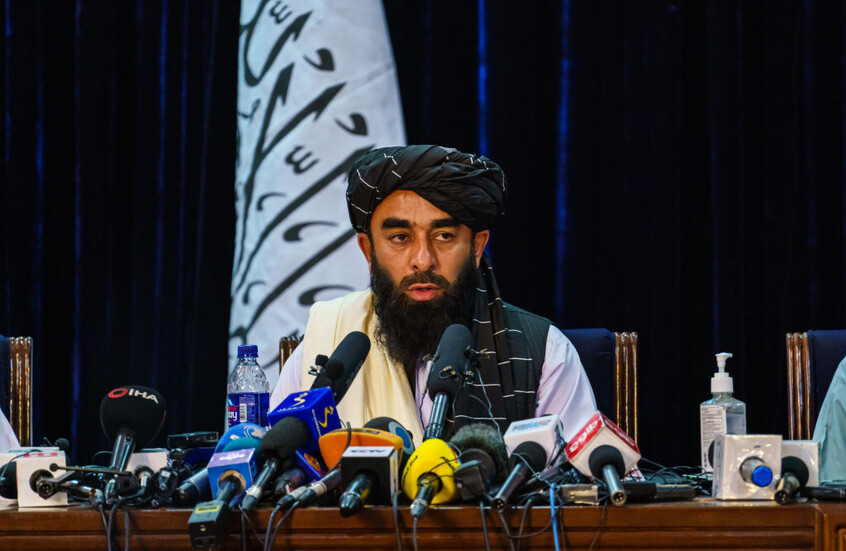"The Taliban" rejects Washington's request regarding Bagram base: "We will not allow our land to be handed over to anyone"
October 6, 202595 ViewsRead Time: 2 minutes

Font Size:
16
The Taliban has firmly rejected U.S. President Donald Trump's call to restore the Bagram airbase in Afghanistan, emphasizing its commitment to national sovereignty and its refusal of any foreign presence on Afghan soil.
Spokesman Zabihullah Mujahid stated in an exclusive interview with British "Sky News":
> "Afghans will never allow their land to be handed over to any party, under any circumstances."
This statement came in response to previous remarks by U.S. President Donald Trump, who said that Washington "wants to restore the Bagram airbase," which was one of the most important U.S. military bases before the withdrawal of troops from Afghanistan in 2021.
Mujahid added that the Afghan government has held talks with the United States regarding the reopening of the Afghan embassy in Washington and the U.S. embassy in Kabul, clarifying:
> "We discussed this matter, and we wish to see the embassies reopened in both capitals."
Regarding the legitimacy of the Taliban government, Mujahid stated that the movement enjoys unannounced international recognition, adding:
> "Russia is not the only country that has publicly recognized the Islamic Emirate; several other countries have granted recognition, even if not officially."
When discussing the restrictions imposed on women and girls, Mujahid acknowledged the continued ban on girls over the age of twelve attending schools, saying:
> "I cannot make any promises regarding the reopening of secondary schools for girls at this time."
As for the 48-hour internet outage in the country, the spokesman explained that he does not know the reason for the disruption, stating:
> "We have not received any official notification from the Ministry of Communications, so we are not in a position to comment."
Regarding the security and economic situation, Mujahid said that Afghanistan is experiencing "relative stability under a unified government," noting improvements in security and signs of economic recovery, despite the significant challenges facing the country.
He attributed the high rates of malnutrition among children — with about 90% of children under five suffering from food insecurity according to UNICEF estimates — to "decades of wars and repeated invasions that have destroyed infrastructure and the economy," in addition to "a sharp decline in international aid."